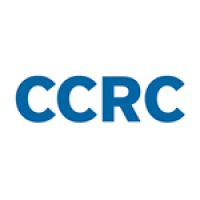By Sarah Griffin and Maria Scott Cormier
Demand for frontline medical workers has spiked as hospitals and other in-patient medical facilities grapple with testing and treating COVID-19 patients. Many essential healthcare providers have quickly implemented telemedicine to virtually interact with patients. Across industries, the transition to remote operations has driven notable growth in cloud computing and software. Disruption to the global supply chain has driven some manufacturing firms to rapidly repurpose their factories to produce essential supplies such as respirators and face shields. These are just some of the ways the COVID-19 pandemic has disrupted employment and accelerated changes in the workplace, putting new demands on workers and, by extension, the community college programs that train them.
CCRC and MIT’s Task Force on the Work of the Future recently examined the implications of employers’ adoption of technologies like artificial intelligence, automation, and robotics. Early insights from the project’s fieldwork at eight community colleges that are leaders in workforce development provide some guidance on the types of skills employers are likely to seek as they respond to the disruptions caused by the pandemic and push toward economic recovery.
Changes in Skill Demands
Across the healthcare, information technology, and manufacturing industries, employers have long sought a combination of skills from prospective workers—including basic skills (i.e. reading, writing, and math), technical skills, and “21st-century” skills, which include cognitive, interpersonal, and intrapersonal skills. However, according to the workforce leaders, college administrators, and faculty we spoke with, the skills expected of community college graduates are changing in complicated ways.
As computers and other new technologies are increasingly embedded within daily work life, employers are expecting higher levels of digital literacy and comfort using technology and data from employees without bachelor’s degrees.
Colleges report that automation and Industry 4.0 innovations (i.e. the fourth Industrial Revolution, or digital transformations to the manufacturing/production industries) require workers to input, interpret, and analyze data—skills that were not previously required in entry-level or middle-skill jobs. While workers need to be familiar with technology, colleges also noted that many employers prefer to teach workers specific technical skills on the job, rather than in the classroom.
Twenty-first century skills are increasingly essential—in part because they are harder to automate.
In today’s labor market, workers are expected to demonstrate strong skills in critical thinking, adaptability, and reasoning on the job, in conjunction with or independent of new technology. Likewise, employers tell their college partners of the growing importance of professional and workplace readiness skills (e.g., timeliness, strong communication, and teamwork) for workers who want to secure jobs or advance in technology-rich industries. Some of the growing demand for professional skills comes from employer demand for more workers who can handle customer service that is complicated by technological changes. Some of the occupational programs we studied are responding with capstone projects, new courses, simulated work situations, and other ways to increase student mastery of customer service and professional skills.
Increased complexity in entry-level jobs contributes to the demand for workers with stronger math, writing, and English language skills.
Job changes resulting from increased automation in the workplace mean that some workers in lower-skilled jobs need more advanced basic skills. For instance, responsibilities in IT and logistics that were once assigned to managers are now given to technicians. As a result, entry-level positions have higher basic skill expectations and, in many cases, more emphasis on strong math skills.
The Impact of the COVID-19 Pandemic
The pandemic is accelerating the adoption of advanced technologies and, in turn, transforming the nature of work, particularly for middle-skill jobs that don’t require a bachelor’s degree. With these changes, employer skill demands will likely evolve, making it imperative that community colleges consider how to respond and cultivate students’ ability to learn new skills. But questions remain about the contours of these new skill demands.
In what ways will the bar for 21st-century skills rise (or fall)? To what extent will employers expect a higher level of technical skills from workers? Will the growth of technology in the workplace draw attention to the importance of digital literacy skills? Different industries will likely face different questions about changing skill demands, for example:
- If telemedicine becomes the new normal for more healthcare providers, how will this new online work environment change the role and responsibilities of healthcare workers like nurses and licensed practical nurses?
- As IT becomes increasingly embedded within day-to-day work and remote work becomes more common, what types of computing, data, and information security skills will be expected of workers that provide IT support?
- If manufacturing firms seek to innovate by adopting technologies like automation, how will this impact the technical capabilities that workers need?
Different factors will inevitably influence colleges’ ability to adapt workforce training to the changing economic landscape. Still, understanding emerging and shifting skill demands—in collaboration with employers—is important for colleges as they consider how students, especially from low-income and racially minoritized communities, can build the skills they need to enter and advance in the labor market, particularly in the healthcare, IT, and manufacturing fields.
Sarah Griffin is a research associate at CCRC. Maria Scott Cormier is a senior research associate at CCRC.
* This work is generously supported by Lumina Foundation.
** CCRC thanks all participating colleges for their time and cooperation in making this study possible, including El Centro College, Hostos Community College, Indian River State College, Laney College, Macomb Community College, Malcolm X College, Monroe Community College, and Wake Technical Community College.





